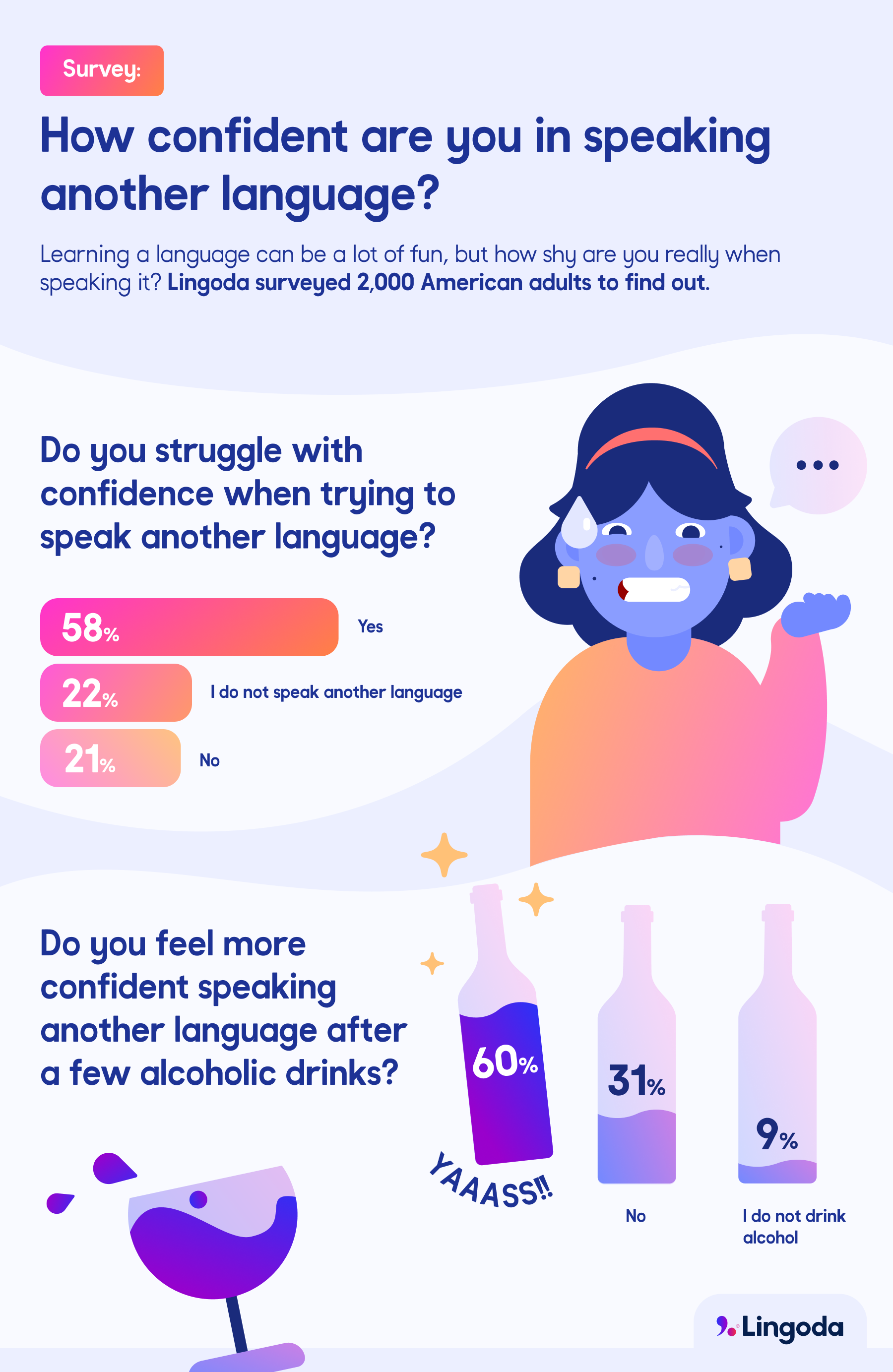Thanks for subscribing!
Check your inbox and confirm your email address to receive offers and updates on our Italian courses.
Written by: Jakob Straub
Published on: Apr 26th, 2023
Alcohol can be a “social lubricant” that helps some people feel less self-conscious when interacting with others. If you’ve found that a few drinks can help you gain confidence when speaking another language, you’re not alone. That’s according to a recent, nationally representative poll of 2,000 US adults conducted by Lingoda.
The survey found that more than half of Americans (58%) struggle with confidence when speaking another language, but 60% reported a boost in confidence after having a few drinks.
So, while of course we don’t condone drinking to boost language confidence, it appears it can be helpful for many Americans looking to practice their language skills in a social setting. Let’s dig into the survey findings below and review a few other ways you can build confidence when learning a language that don’t involve drinking.
| More than half (58%) of Americans from our survey said they struggle with confidence when speaking another language |
| Even more (60%) reported feeling more confident speaking another language after having a few alcoholic drinks |

Lingoda polled 2,000 adults of legal drinking age and found that issues with language confidence are prevalent across the US. More than half (58%) of participants responded they struggle with confidence when trying to speak another language. Only 21% reported they didn't face this issue, while 22% said they didn't speak another language.
For many, the consumption of alcohol helps: 60% of respondents said they felt more confident speaking another language after they've had a few alcoholic drinks. Less than a third (31%) said this was not the case, while 9% reported not drinking alcohol at all.
Issues with confidence are more frequent among younger Americans, our survey found. Nearly three-quarters (71%) of participants aged 21 to 24 and 74% of those aged 25 to 35 reported struggling with confidence when speaking a foreign language.
Among the participants in the younger age groups, a greater percentage also reported feeling the confidence-boosting effect of alcohol. More than three-quarters (79%) of respondents aged 21 to 24 and 69% of respondents aged 25-34 said they felt more confident speaking another language after a few alcoholic drinks.
Building confidence itself (without alcohol consumption) is among the mental health benefits of learning a language. But what can you do when you get nervous and therefore struggle to speak confidently in another language? Here are five steps to improve your confidence—also check out our top ten tips to combat language learning nervousness:
As your skills in a language improve, so will your confidence in speaking it. Lingoda’s approach to language learning is communicative: students have the opportunity to practice speaking in every lesson and our extensive rotating roster of teachers exposes them to a variety of accents and expressions.
OnePoll collected quantitative data for this study on behalf of Lingoda. Between April 6 and April 11, 2023, 2,000 US adults aged 21 and older answered questions regarding their confidence speaking another language, without and after a few alcoholic drinks.